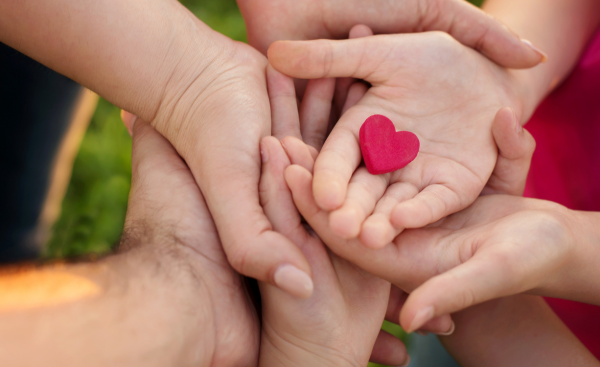As a parent, you want to celebrate the arrival of your child in a meaningful way. If you’re not religious, or if you’re looking for an alternative to a christening or baptism, a name-giving ceremony may be the perfect option for you.
In this article, we’ll dive into the significance, traditions, and planning involved in naming ceremonies: an alternative to christening/baptism, offering valuable insights to first-time parents and those seeking alternatives to traditional christening/baptism.
Understanding Name Giving Ceremonies
These alternative events are heartfelt gatherings that focus on cherishing a child’s name and identity. Unlike traditional christenings, these ceremonies have a non-religious essence, making them accessible to families from diverse cultural backgrounds.
- Honouring Family Heritage: Name Giving Ceremonies provide a wonderful opportunity to honour family heritage and the stories behind the chosen name, connecting the child to their roots.
- Inclusivity and Love: The ceremony emphasizes the inclusivity of love and acceptance within a family, celebrating the child’s arrival in a warm and embracing atmosphere.
The Significance of Naming
A child’s name holds immense importance in various cultures and traditions. It symbolizes their unique identity and the hopes and wishes of their parents. Name Giving Ceremonies allow parents to celebrate the significance of their child’s name with loved ones, creating a joyous and memorable occasion.
- Name and Identity: The chosen name becomes an integral part of the child’s identity, shaping their journey through life and influencing their sense of self.
- Parental Aspirations: The ceremony becomes a heartfelt expression of parental aspirations and dreams for their child, fostering a sense of purpose and belonging.

Embracing Family and Friends
At the heart of a Name Giving Ceremony lies the spirit of togetherness. Family and friends play a significant role in this celebration, offering their love and support. The ceremony becomes a shared experience, binding everyone present in a warm and loving embrace.
- Creating Lasting Memories: The presence of loved ones makes the ceremony a treasure trove of memories, cherished not only by the parents but also by the child as they grow older.
- The Power of Community: Embracing family and friends strengthens the sense of community and support, reminding parents that they are not alone on their journey.
Planning a Meaningful Name Giving Ceremony
Organizing a meaningful Name Giving Ceremony requires thoughtful planning. Consider various venue options that align with the atmosphere you envision. Decorate with personal touches, embracing the essence of your child’s name and identity.
- Venue Selection: From charming gardens to intimate family homes, the venue sets the tone for the celebration, making each ceremony unique and special.
- Themes and Décor: Infuse the ceremony with themes and decorations that resonate with the child’s name, creating a beautiful ambiance for all to enjoy.
Our Planning A Christening article goes into more depth.
Rituals and Symbolism
Infuse your Name Giving Ceremony with meaningful rituals and symbolic acts. From lighting candles to planting trees, these gestures carry deep significance and create unforgettable memories for all in attendance.
- A Blessing of Love: Bless the child with love and good wishes, encompassing them in the warmth of family and friends.
- The Unity Candle: The unity candle symbolizes the merging of families and the continuous love and support the child will receive throughout their life.

Unique Cultural Influences
Name Giving Ceremonies showcase a delightful array of customs and traditions from diverse cultures worldwide. Embrace the richness of these ceremonies, and draw inspiration from different practices to add a touch of global flair to your celebration.
- Cultural Rituals: Incorporate customs from different cultures, such as ribbon-cutting ceremonies or the giving of symbolic gifts, adding depth to the celebration.
- Universal Love: Embrace the universal language of love in every ceremony, as it transcends cultural boundaries and connects us all.
Naming Gifts and Keepsakes
Mark this special occasion with thoughtful gifts that centre around the child’s name. Personalized keepsakes carry sentimental value for years to come, serving as cherished mementoes of this joyous day.
- A Time Capsule: Create a time capsule filled with mementos from the ceremony and heartfelt letters from loved ones, to be opened on a significant future date.
- Name-a-Star: Gift the child with a star named after them, symbolizing the limitless potential and brightness of their future.
Check out our Generating Gift Ideas article.

A naming ceremony is a beautiful way to celebrate the arrival of your child. It’s a chance to cherish their name and identity, and to express your love and hopes for their future. If you’re looking for a meaningful and non-religious way to welcome your child into the world, I encourage you to consider a name-giving ceremony.
I hope this article has given you a better understanding of name giving ceremonies. If you’re considering this type of ceremony for your child, I encourage you to do your research and design an event that is right for your family.
FAQ: Name Giving Ceremonies Explained
As you explore the heart warming world of Name Giving Ceremonies, it’s natural to have some questions about this beautiful alternative to christening/baptism. Here are three frequently asked questions to help you better understand and plan this meaningful celebration:
1. What should be included in a naming ceremony?
A Name Giving Ceremony is a deeply personal and inclusive event that celebrates your child’s name and identity. While the specifics can vary based on your preferences and cultural influences, some common elements to consider including are:
- Introduction and Welcome: Start by welcoming your guests and setting the tone for the ceremony.
- Readings and Blessings: Incorporate readings, poems, or blessings that hold sentimental value and reflect your family’s beliefs.
- Naming Ritual: Embrace a special moment where the child’s name is formally announced and explained.
2. What do you get a child for a naming ceremony?
Choosing a thoughtful gift for a Name Giving Ceremony is a beautiful way to celebrate the occasion and create lasting memories. Some meaningful gift ideas include:
- Personalized Keepsakes: Engrave the child’s name on jewellery, a photo frame, or a special keepsake box.
- Books: Select books with personalized dedications or stories that carry special messages for the child’s future.
3. Can anyone do a naming ceremony?
Absolutely! One of the beauties of a Name Giving Ceremony is its inclusivity. Anyone can plan and conduct a Name Giving Ceremony, regardless of religious affiliation. The ceremony can be as intimate or as grand as you desire, and you have the freedom to tailor it to your family’s beliefs and cultural background. Whether you’re a parent, guardian, family member, or a close friend, you can create a heartfelt and memorable celebration to cherish.
Check out Humanist Naming Ceremonies to learn more.
You can find out more about A World Of Christening Ceremonies in one of our latest articles.
I hope you have enjoyed this post and continue to visit for further inspiration and guidance. Please feel free to leave comments and questions in the comment box below.
Until next time.
Steve

